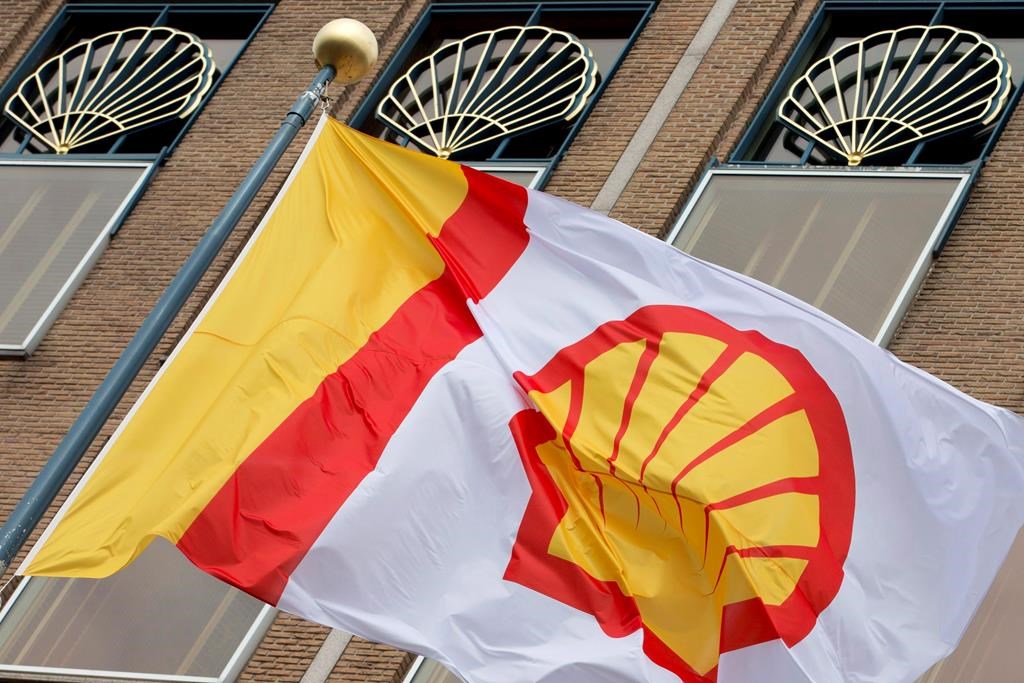Natural gas producers frustrated by Ottawa's delay to TC Energy's biggest pipeline expansion
KENNEY'S BOONDOGGLE
Geoffrey Morgan

© Provided by Financial Post TC Energy’s plan to put the last piece of the Nova Gas Transmission Ltd. expansion into service at a cost of $2.4 billion has been delayed for a full year.
CALGARY — A delayed natural gas pipeline project in Alberta will impact close to $4 billion in planned capital spending this year, delay drilling plans and potentially lead to commodity price volatility next year, according to gas producers.
“We were all very disappointed that while we’re still drilling wells and keeping the lights on, the Canadian government couldn’t get an approval done. That’s pretty frustrating and it put this project back,” said Darren Gee, president and CEO of Peyto Exploration and Development Corp., of what is now expected to be a yearlong delay to a $2.4-billion gas pipeline expansion by TC Energy Corp.
Calgary-based pipeline giant TC Energy has spent $9 billion expanding its largest asset and Canada’s largest natural gas pipeline network, called Nova Gas Transmission Ltd. or NGTL, in recent years. The goal of the massive, multi-year expansion was to alleviate pinch points in critical parts of the system and allow more gas from northwestern Alberta to flow to trading and storage hubs in southern Alberta.
The Canada Energy Regulator recommended the federal government approve the project on Feb. 19, triggering a 90-day timeline for Ottawa to make a decision. But on May 19, the government opted to take another 150 days to review the project and consult with affected Indigenous communities.
Now, even as a decision is expected on Oct. 19, TC Energy’s plan to put the last piece of that expansion into service at a cost of $2.4 billion has been delayed for a full year and Canadian natural gas producers are concerned the bottlenecks on the NGTL system will lead to unpredictable swings in Canadian gas prices.
“This was the last of the $9 billion of capital they were going to invest in the Nova system,” said Gee, adding companies in the industry are now unsure how much to drill this winter because they don’t want to overwhelm the system’s bottlenecks next summer.
“What are producers to do? I guess we shouldn’t go drill,” he said.
The NGTL additions were planned to arrive just in time for Canadian natural gas producers, which have been struggling with low prices for years. Following the pandemic, however, competing natural gas production in the U.S. is projected to decline sharply and is setting up a better commodity price outlook for gas. The producers are concerned the opportunity is now in jeopardy.
Multiple natural gas executives have compared the NGTL system to a puzzle with missing pieces, and those missing pieces make it difficult for traders and producers to determine how much gas to drill, buy and sell next summer.
“There’s a reason they needed the entire system to expand and they really needed to complete that in order to prevent disarray in the market,” said Tristan Goodman, president of the Explorers and Producers Association of Canada, which is an industry group representing small- and mid-sized oil and gas companies.
“We’re missing pieces, basically,” he said of the delay to the last piece of TC Energy’s NGTL expansion.
TC Energy had planned to begin construction on a 1.45 billion cubic feet expansion to the NGTL system between Grande Prairie and Rocky Mountain House, Alta., this summer in order to have the expansion up and running in April 2021, but the federal government delayed final approvals for the project on May 19.
In an email to the Financial Post, the pipeline giant said it has now lost the summer construction season and the new in-service date for the expansion is April 2022, which has frustrated Canadian natural gas producers concerned the bottlenecks on the system will lead to the kind of gas price volatility experienced in the summer of 2017, 2018 and much of 2019, when the AECO benchmark would frequently trade in negative territory.
© Jim Wells/Postmedia files TC Energy CEO Russ Girling at a Keystone XL pipeline announcement.
The industry is still waiting on federal government approval for the project, which is now expected on Oct. 19.
EPAC’s Goodman said the industry is frustrated by the delay but understands that Ottawa needs to ensure it properly consults with affected Indigenous communities along the route. “Yes, we are disappointed but in the same sense we can appreciate why the Crown and the federal government did delay that,” he said.
Ottawa delayed a decision on the project because of the coronavirus pandemic at the request of Indigenous communities along the route, according to Ian Cameron, spokesperson for Natural Resources Minister Seamus O’Regan.
“It is a core responsibility of the federal government to help get our natural resources to new markets and create good jobs. This is only possible when we meet our constitutional duty to meaningfully consult with potentially impacted Indigenous communities,” Cameron said in an email.
Executives at Calgary-based natural gas companies said the delay is particularly frustrating as Alberta struggles with a deep recession and thousands of job losses as a result of the COVID-19 pandemic and related plunge in oil prices.
The 2021 NGTL Expansion project would have put 5,500 people to work, TC Energy said in an emailed statement.

© The Montreal Gazette files The 2021 NGTL Expansion project would have put 5,500 people to work, TC Energy said.
“We remain committed to the project and continue to engage with the government to advocate the criticality of a timely approval to enable us to construct to provide the essential capacity require to serve incremental transportation contracts and meet the growing demand for natural gas,” TC Energy said in an email to the Financial Post.
Altogether, the expected hit to capital spending in Alberta this year will be closer to $3.9 billion because the $2.4 billion in spending on the pipeline expansion will be delayed, and that will in turn delay $1.3 billion to $1.5 billion in upstream capital spending, said Cameron Gingrich, managing partner and strategy at Calgary-based consultancy Incorrys Inc.
“Between the $2.4-billion project and additional $1.5 billion in upstream spending, you’re basically deferring that in the economy by a year or so, which in a COVID world is a really tough thing to take,” Gingrich said. “Certainly there’s a multiplier to the $2.4 billion and the $1.5 billion, which includes hotels and restaurants and fuel stations along the way.”
The delay has also led to a renewed fight between TC Energy and gas producers over how the NGTL system should operate in order to minimize the effect of the pinch points along the system, which producers say have in the past prevented them from accessing storage facilities.
The provincial government stepped in to help negotiate the service protocol between a divided set of producers and TC Energy in 2019. Simply put, the temporary protocol allowed producers with interruptible service contracts on the NGTL system to send their gas to storage even when TC Energy needs to interrupt service on the pipelines for maintenance.
EPAC has asked the Canada Energy Regulatory to extend that temporary protocol, which had been scheduled to expire this year, through 2021. TC Energy has opposed this extension and now the Alberta government is getting involved again.
“With regards to the temporary storage protocol, our government will always be supportive of any initiative that sees the natural gas sector working together for the collective success of the industry,” Alberta’s Associate Minister of Natural Gas Dale Nally said in an email.
In a province reeling from the oil price crash, grounded flights and zero international tourism, growth in the natural gas business would have provided a small buoy in a deep recession.
“Natural gas has been the one bright light for the global energy market since the pandemic hit, and throughout the oil price crash,” Nally said.
Financial Post







/cloudfront-us-east-1.images.arcpublishing.com/tgam/IABP53S6WZL2XAZW6F2ML6IFKM.jpg)







 © Olga Maltseva/AFP via Getty Images In this file photo taken on April 05, 2018 Russian historian Yury Dmitriyev, who heads rights group Memorial's branch in Karelia, arrives for the verdict in his child pornography trial at a court in the city of Petrozavodsk in northwestern Russia.
© Olga Maltseva/AFP via Getty Images In this file photo taken on April 05, 2018 Russian historian Yury Dmitriyev, who heads rights group Memorial's branch in Karelia, arrives for the verdict in his child pornography trial at a court in the city of Petrozavodsk in northwestern Russia.